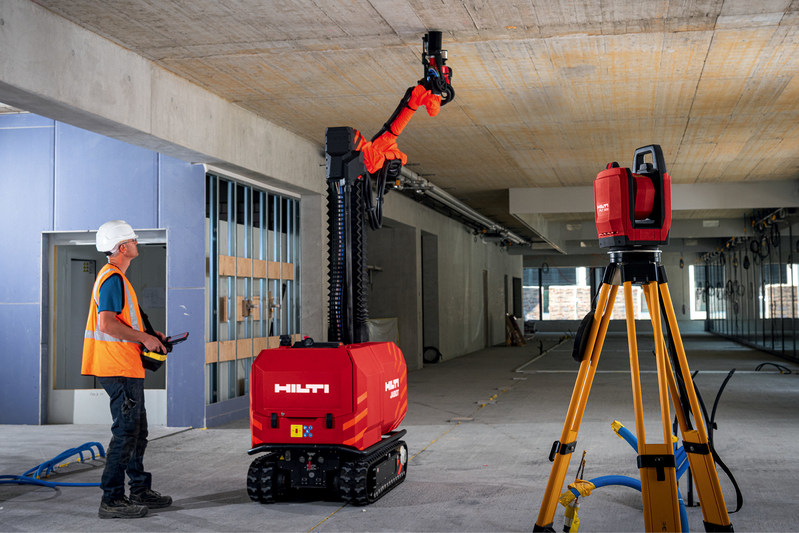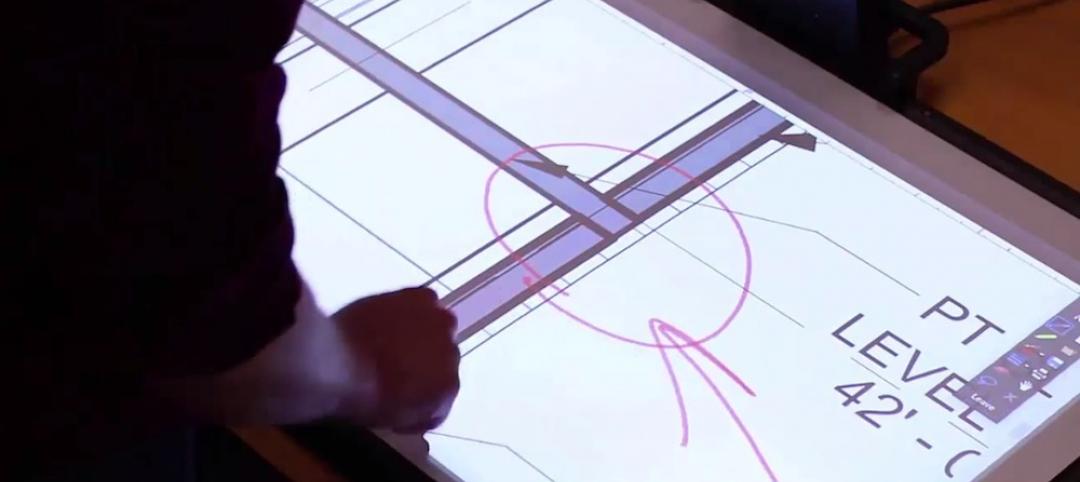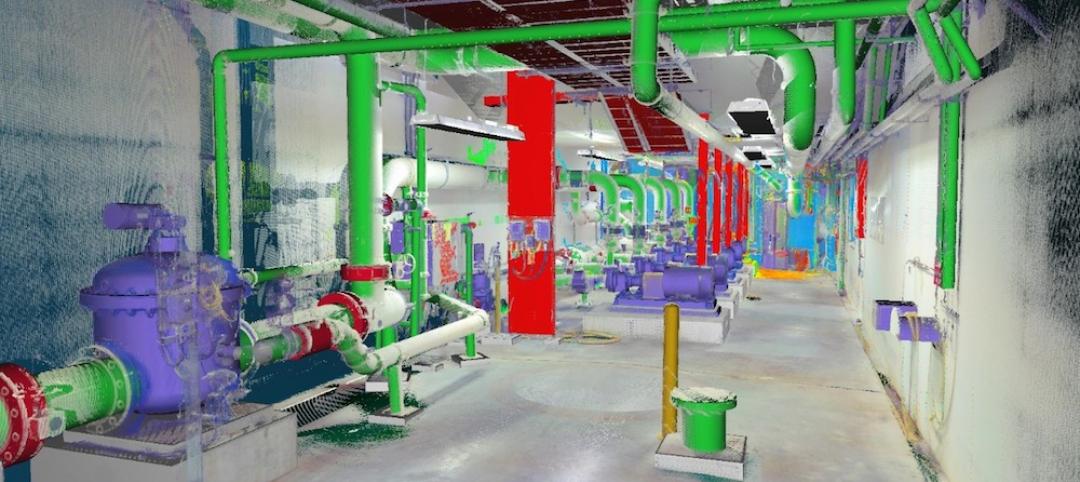Construction tools manufacturer Hilti has unveiled a BIM-driven construction jobsite robot, Jaibot.
The semi-autonomous robot is designed to assist mechanical, electrical, and plumbing (MEP) contractors with ceiling-drilling, and help tackle productivity, safety, and labor shortage challenges.
Using data from the BIM model, Jaibot locates itself accurately indoors, drills the holes dust-controlled, and marks them according to the trade, according Hilti.
"The productivity of the construction industry has been lagging behind other sectors for years," said Jan Doongaji, Member of the Executive Board, Hilti Group. "Margin pressure and shortages of skilled labor are already facts of life in our industry and make it increasingly difficult to overcome productivity shortfalls.
"With Jaibot, and in close collaboration with our customers, we are further stepping toward realizing the efficiency that digital transformation can and will bring to construction sites," added Doongaji.
ALSO SEE: A robotic dog becomes part of Swinerton’s construction technology arsenal
Safety played an important role in the development of the Jaibot. It is designed to assist tradespeople in physically demanding, repetitive installation tasks such as drilling numerous holes overhead for many mechanical, electrical or plumbing installations. It is navigated by the worker via remote control and uses reference data from a robotic total station, the Hilti PLT 300. Holes within reach are drilled automatically.
"We looked at which routine work on the construction site is among the most stressful, and that is primarily overhead work," said Julia Zanona, Product Manager for Robotics at Hilti. "From the beginning, it was important to us to develop a robotic solution that supports our customers where it is most needed. The Hilti Jaibot takes over the most strenuous and exhausting tasks, working alongside the installation team."
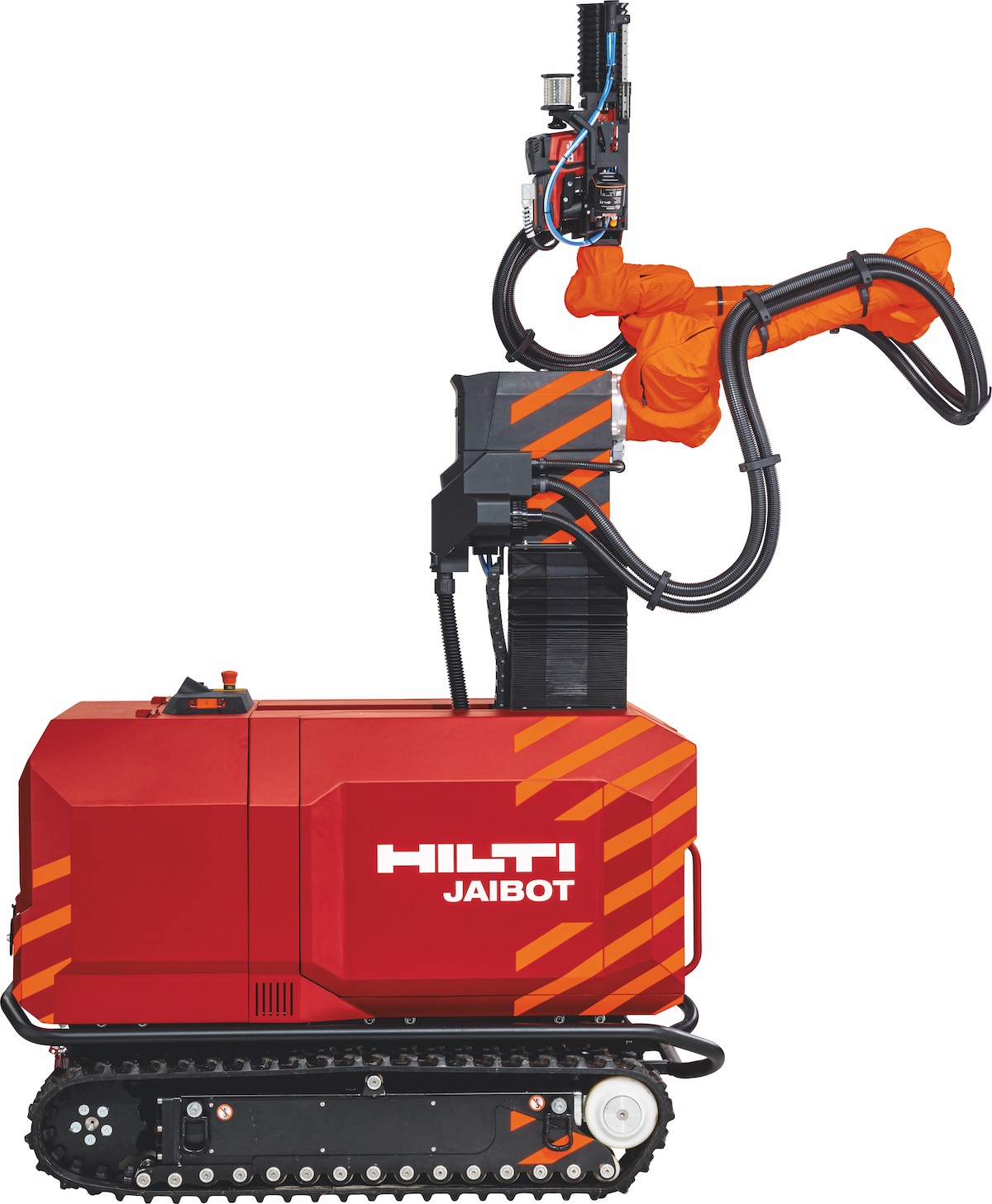
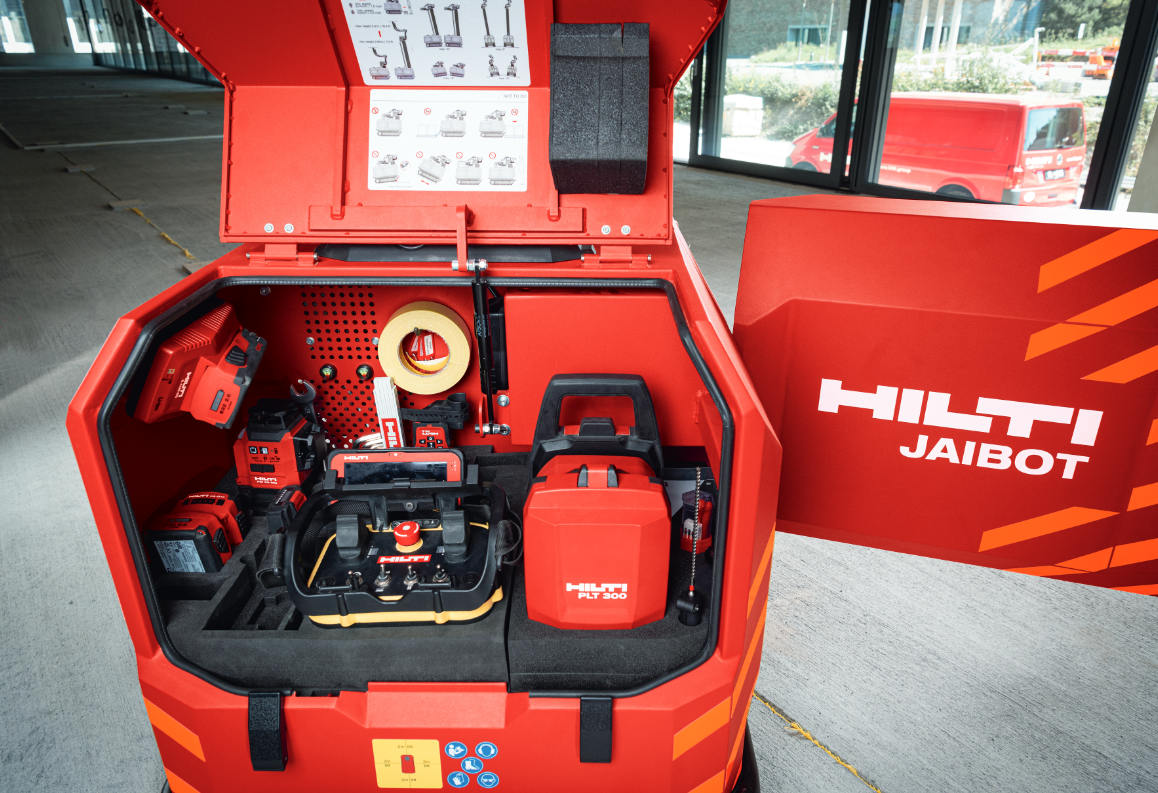
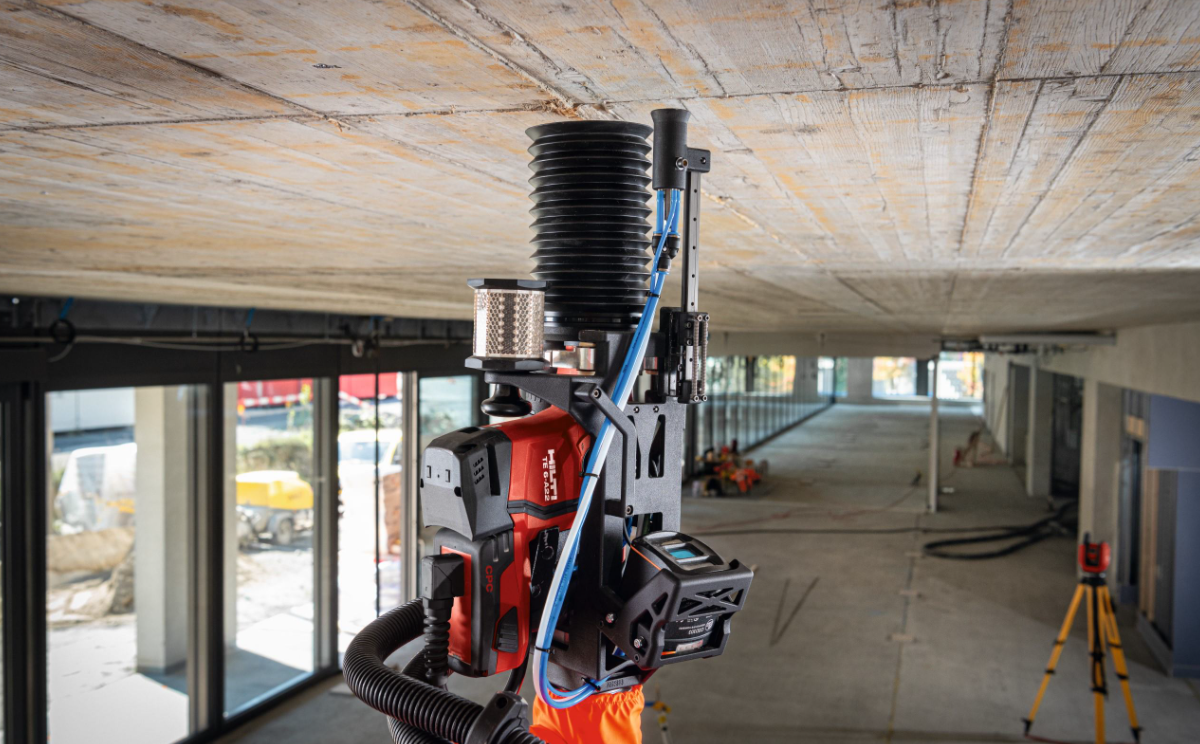
Related Stories
Big Data | May 5, 2016
Demand for data integration technologies for buildings is expected to soar over the next decade
A Navigant Research report takes a deeper dive to examine where demand will be strongest by region and building type.
BIM and Information Technology | May 2, 2016
How HDR used computational design tools to create Omaha's UNO Baxter Arena
Three years after writing a white paper about designing an arena for the University of Nebraska Omaha, HDR's Matt Goldsberry says it's time to cherry-pick the best problem-solving workflows.
Virtual Reality | Apr 29, 2016
NBBJ to develop virtual reality productivity platform
The Seattle design firm has partnered with Visual Vocal, a startup VR company.
Drones | Apr 25, 2016
The Tremco SkyBEAM UAV is the first to be approved by the FAA for nighttime commercial operation
The SkyBEAM UAV is used for identifying energy leaks, rooftop damage, deteriorating façades, and safety issues without requiring scaffolding or cranes.
AEC Tech | Apr 15, 2016
Should architects learn to code?
Even if learning to code does not personally interest you, the growing demand for having these capabilities in an architectural business cannot be overlooked, writes computational design expert Nathan Miller.
Building Tech | Apr 12, 2016
Should we be worried about a tech slowdown?
Is the U.S. in an innovative funk, or is this just the calm before the storm?
AEC Tech | Apr 12, 2016
Startup introduces PaperLight, an interactive projection screen for AEC pros
The device lets users edit sketches, plans, and images with a stylus or their fingers.
AEC Tech | Mar 31, 2016
Deep Learning + AI: How machines are becoming master problem solvers
Besides revolutionary changes to the world’s workforce, artificial intelligence could have a profound impact on the built environment and the AEC industry.
AEC Tech | Mar 17, 2016
Managing risks with laser scanning gives AEC firms an edge
The more that clients demand the service, the easier it is to justify the cost of laser scanning equipment and software.
AEC Tech | Mar 15, 2016
Two to tango: Project Tango isn’t just for entertainment, it also has a wide range of possibilities relating to the professional world
Making things like augmented reality, precise measurements of indoor spaces, and indoor wayfinding possible, Google’s Project Tango has all the makings to become a useful and ubiquitous tool in the AEC market.


